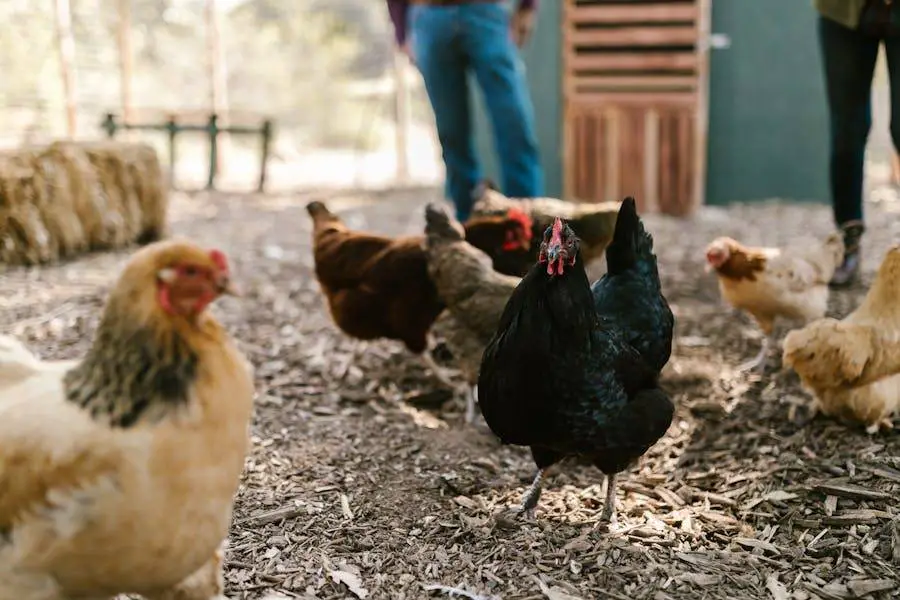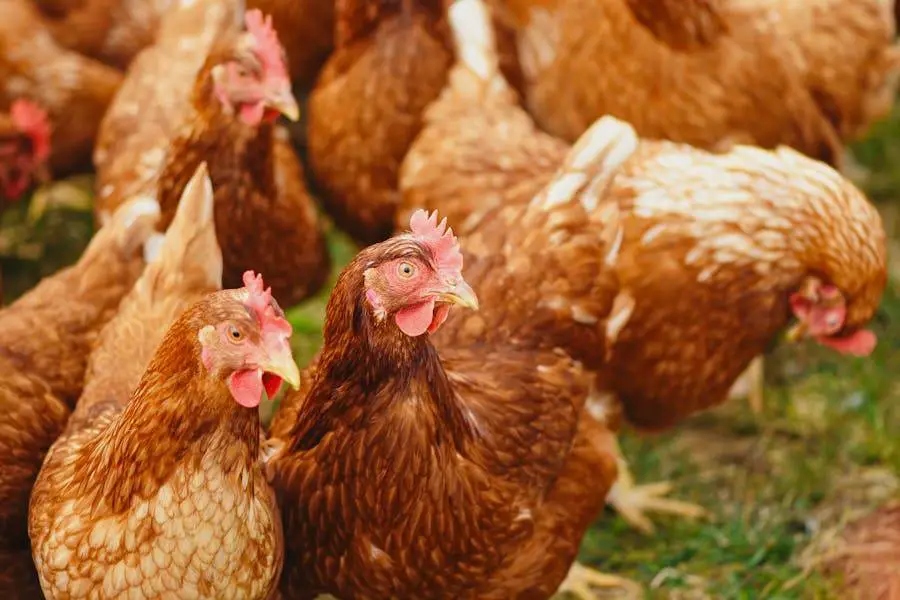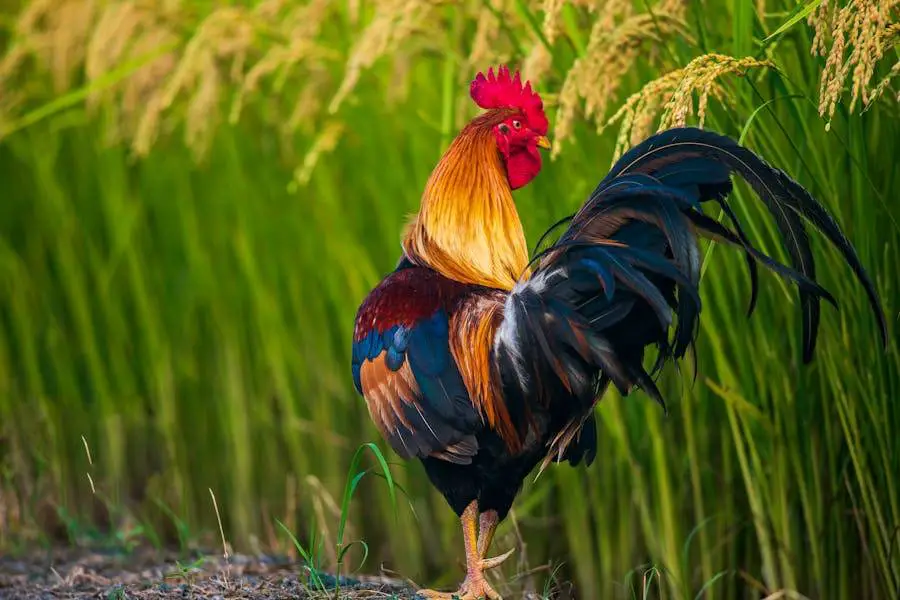Table of Contents
Parasitic worms are a common issue among backyard chickens. These parasites can cause a range of health problems, such as weight loss, decreased egg production, and in severe cases, death.
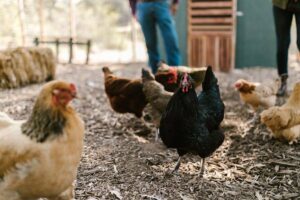
Regular worming is a crucial part of maintaining your chicken’s health and ensuring a productive flock.
Wazine, also known as piperazine, is a popular wormer used for poultry. It’s especially effective against roundworms, one of the most common types of worms in chickens.
However, like any medication, it’s important to use Wazine correctly to ensure its effectiveness and minimize potential side effects.
Step-by-Step Guide to Worming Chickens With Wazine
Step 1: Identifying the Need for Worming
Symptoms of worm infestation in chickens may include a dull or ruffled appearance, weight loss, reduced egg production, diarrhea, and visible worms in droppings.
If you observe these symptoms in your flock, it’s likely time for a worming treatment.
Regular health checks are essential to catch worm infestations early.
This includes regular observation of your chickens’ behavior, appearance, and egg production, as well as periodic fecal exams to check for worm eggs.
Step 2: Preparing for the Worming Process
Understanding Your Flock’s Health Status
Before starting the worming process, it’s crucial to understand the current health status of your flock.
Look out for signs of worm infestations such as weight loss, decreased egg production, diarrhea, or unusual behavior.
If you suspect a worm infestation, it might be beneficial to get a fecal test done by a vet to confirm the type of worms affecting your chickens.
Sourcing Wazine
Ensure that you have a fresh supply of Wazine. Check the expiry date on the bottle before use. Wazine can be purchased from veterinary clinics, farm supply stores, or online.
Always buy from reputable sources to ensure the quality and efficacy of the medication.
Calculating the Dosage
Wazine dosage is usually based on the weight of your chickens and the amount of drinking water they consume. Read the manufacturer’s instructions carefully to calculate the correct dosage.
Overdosing can lead to adverse reactions, while underdosing may not effectively treat the worm infestation.
Preparing the Medication
Mix the calculated dose of Wazine with the correct amount of water as per the manufacturer’s instructions. It’s crucial to thoroughly mix the medication to ensure its even distribution.
Provide this medicated water as the sole source of drinking water for the recommended duration.
Planning for Withdrawal Period
Remember that after administering Wazine, there will be a withdrawal period during which eggs and meat from the treated chickens should not be consumed.
Plan accordingly so that you have an alternative source of eggs or meat during this period if necessary.
Preparing Your Chickens
Ensure your chickens are in good health before starting the worming process. Sick or stressed birds may react adversely to the medication.
Also, avoid worming during extreme weather conditions, as this could cause additional stress to your chickens.
By preparing adequately for the worming process, you can ensure its success and minimize potential risks.
It’s always best to consult with a vet or an experienced chicken keeper if you’re unsure about any aspect of the worming process.
Step 3: Administering Wazine
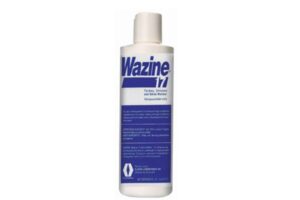
Preparing the Medication
Start by preparing the medicated water. Mix the correct dose of Wazine with the recommended amount of water, as per the manufacturer’s instructions.
Make sure to mix the solution thoroughly to ensure even distribution of the medication in the water.
Replacing Regular Drinking Water
Remove all other sources of drinking water from your chickens’ environment.
This step is crucial to ensure that your chickens consume the medicated water. Replace their regular drinking water with the medicated water.
Monitoring Consumption
Monitor your chickens to ensure they are drinking the medicated water. Chickens might initially be wary of the change in their water. Encouraging consumption is crucial for the effectiveness of the medication.
Continuous Administration
Administer the medicated water for the duration recommended by the manufacturer or your vet. This period can vary depending on the severity of the infestation and the specific type of worms being targeted.
Observing Your Chickens
Keep a close eye on your chickens during the treatment period. Look out for any signs of adverse reactions to the medication, such as changes in behavior, eating patterns, or general health.
If you notice anything unusual, contact your vet immediately.
Cleanliness and Hygiene
Maintain high standards of cleanliness and hygiene during the treatment period.
Regularly clean and refill the water containers to ensure your chickens have access to fresh medicated water at all times. Proper sanitation can also help reduce the chances of re-infestation.
Post-Treatment
After the treatment period, replace the medicated water with regular clean water.
Monitor your chickens closely for a few more days to ensure the effectiveness of the treatment and to catch any signs of potential re-infestation.
Step 4: Post-Worming Care
Monitoring Your Chickens After Worming
After worming, monitor your chickens closely for any signs of adverse reactions. Also, check their droppings for worms to ensure the treatment is effective.
Dealing with Potential Side Effects
Side effects from Wazine are rare but can include loss of appetite or lethargy. If you notice these symptoms, consult a vet immediately.
Addressing Potential Risks and Concerns
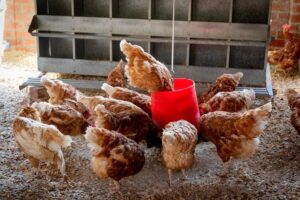
Recognizing the Side Effects of Wazine
Wazine, like any medication, may potentially cause side effects. While generally safe, some chickens may react adversely to the medication.
Signs of adverse reactions can include loss of appetite, lethargy, decreased egg production, or changes in behavior. In rare cases, more severe reactions such as respiratory distress or seizures may occur.
It’s crucial to monitor your flock closely after administering Wazine and seek veterinary help if you notice any unusual signs.
Understanding the Limitations of Wazine
While Wazine is effective against roundworms, it does not treat all types of worms that can infest chickens. For instance, it won’t work against tapeworms or gapeworms.
Therefore, if your chickens are infected with different types of worms, additional treatments may be necessary.
Considering Withdrawal Periods
Wazine has a withdrawal period – the time you need to wait after administering the medication before you can safely consume the eggs or meat from treated birds.
This period allows the drug to clear from the bird’s system. The exact length of the withdrawal period can vary, but it’s typically around two weeks.
Always follow the manufacturer’s guidelines regarding withdrawal periods to ensure the safety of your food.
Managing Resistance
Overuse or incorrect use of wormers like Wazine can lead to resistance, where worms become immune to the effects of the medication.
To prevent this, only use Wazine when necessary and always follow the recommended dosage and administration instructions.
It’s also beneficial to rotate between different types of wormers to prevent resistance.
Conclusion
Worming your chickens with Wazine involves identifying the need for worming, preparing for the process, administering the medication correctly, and providing post-worming care.
Regular worming is crucial for maintaining your chicken’s health and productivity. With proper use, Wazine can be an effective part of your flock’s worming routine.
Always remember, prevention is key – a clean environment, regular check-ups, and careful observation can go a long way in keeping your flock healthy and happy.

